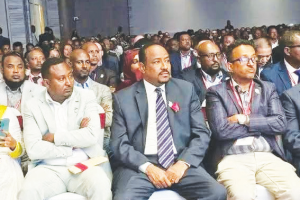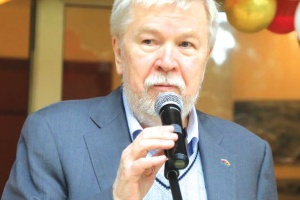
Cinema is culture, and culture has no borders. In the Spanish elections on 28th April, the votes of 10% of the electorate added a xenophobic slant to the country’s political landscape. It therefore comes as no surprise that the most commonly asked question at the 16th edition of the Tarifa-Tangier African Film Festival is: what is it that remains hidden (or that we refuse to see) in Africa despite the continent being so close?
Africa is the youngest continent in the world, with 60% of the population aged less than 25 years old. The continent’s population and resources are shaping the future of the planet, and this idea is beginning to permeate the collective world view outside Africa. Despite this, we remain poorly informed or completely uninformed about the continent as a whole. One solution to this problem is knowledge, the only tool truly able to counter the stereotypes and prejudices about Africa held in Western societies, especially Spain, which no longer make sense in the modern world.
The achievements, hard work and drive which are present on the African continent are rarely reflected by the Western media. Also absent from the public discourse are the many values now lost in Western societies yet which persist in African countries, such as solidarity, family and respect for elders. Outside the continent, Africans are often associated with undocumented migration, terrorism, illiteracy and poverty. In Spain, the large Nigerian, Moroccan and Senegalese populations rarely see their cultures represented beyond the eternally distorted image of the manteros or street sellers.
FCAT seeks to broaden Western minds using cinema as a tool to foment knowledge. It is the only cross-border cinematographic event held simultaneously in both Africa and Europe. The festival is now in its 16th edition and has already screened around 1,200 films. From 25th April to 4th May, 82 films will be presented in the Spanish towns of Tarifa, Algeciras, Los Toruños and El Puerto de Santa María, as well as in the Moroccan cities of Tangier, Chefchaouen and Tetouan. Twenty-nine of these are premieres in Spain.
“Films made in Africa transmit the same messages as any other cinematography on the planet. African directors are not a different category; they are filmmakers first and foremost”, explains the festival’s director, Mane Cisneros. While cinema in general tends to reflect social concerns, African films show us the continent in all its strength, rawness and wonder. African cinematographies provide a glimpse of different ways of interpreting family relationships, reflecting an unknown dialectic between de facto powers, young people and women. The directors seek to convey their concerns, struggles, frustrations and hopes in the most direct, palpable way possible via the big screen.
Take the example of radical Islam in African countries. The public debate about radicalisation has become simplified to such a degree that it actually prevents a deeper understanding of the problem. Lost Warrior, a documentary film by Nasib Farah and Søren Steen Jespersen, which is competing for an award at the Tarifa-Tangier African Film Festival, provides insights into the complex mechanisms that can lead to social isolation and radicalisation. As the film reveals, isolation and radicalisation in Somalia and the United Kingdom can be linked to a clash between cultures and between generations within the same culture. As Jespersen puts it, “I think we’ve been too preoccupied with finding simplified explanations for why this radicalisation happens, namely that the young people in question become radicalised online or in the mosque and they do so because they feel isolated and marginalised. Not that this isn’t true, but I believe the truth to be much bigger and endlessly more complex – thus also more interesting.”
It is widely known that cinema can change perceptions – what is less known or recognized is the role of filmmakers and film festivals in disseminating a truer, plural narrative about the African continent. Thus, filmmakers and festivals must be supported so they can keep developing new ways to depict and explain the neighbouring continent, promoting a more humble, respectful relationship between Africa and the rest of the world.
The Ethiopian Herald May 04/ 2011BY MARION GIRARD CISNEROS





